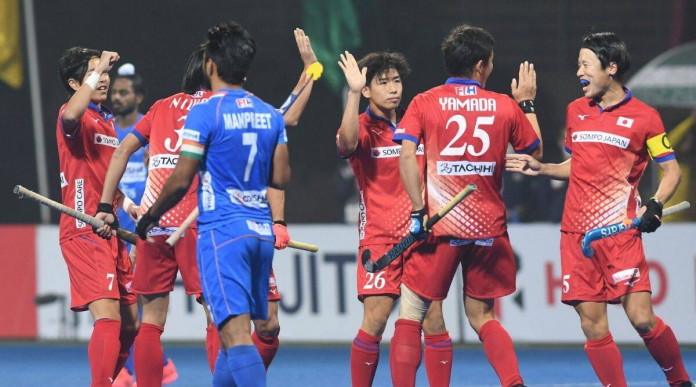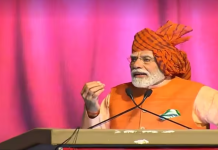The tone was set in the opening 100 seconds.
It took India only five seconds to steal the ball from the push-back and surge towards the Japanese goal, carrying on from where they left off a couple of days ago when they hammered six goals past the same opponents.
However, it turned out that those were the only five seconds India showed any kind of intent in the semifinal of the Asian Champions Trophy on Tuesday. The moment Japan intercepted the ball, the match slipped out of India’s hands. In the 95 seconds that followed, Japan earned five penalty corners, a penalty stroke and scored two goals.
For the rest of the match, Japan didn’t let the early momentum slip. They played with the same speed and intensity on turnovers, passed with clinical precision and were as ruthless inside the ‘D’ as they were in the opening minute and 40 seconds as the Asian Games gold medallists pulled off a stunning 5-3 win over the Tokyo Olympics bronze medallists to qualify for Wednesday’s final, where they will meet South Korea.
India, who have now lost in the semifinals of a continental competition for the second time in the last three years after losing to Malaysia at the 2018 Asian Games, will take on Pakistan in the third-place playoff. Despite a heroic effort, Pakistan lost to South Korea 6-5. Compared to that thriller, the India-Japan match was pretty much one-way traffic for large parts.
Captain Manpreet Singh called his team’s performance, at the start at least, ‘lazy’ and coach Graham Reid, at half time, urged his players to ‘wake up’. But more than India’s surprising levels of naivety and complacency, this was about Japan and their near-flawless performance – mainly in the first half – which really sealed the result.
India, the most dominant side of the round-robin stage, didn’t have any answers to the speed and aggression shown by Japan, especially on turnovers. As Reid – who was unusually animated during his quarter-time talk after the first period – pointed out, Japan were getting first to the ball and winning most of the 50-50 battles in midfield.
Most of Japan’s potent moves came from the right, from where the attacking trio of Kenta Tanaka, Takuma Niwa and Kazuma Murata tormented the Indian defence, which was totally bereft of composure and surety. Half of the six penalty corners Japan earned in the first five minutes of the match originated from their right and on most occasions, they were avoidable as the Indian defenders weren’t able to trap the ball cleanly.
Old failings resurface
It’s worth reminding that half of the Indian side is playing a competitive international tournament after more than two years. That, though, is true for other teams as well and this wasn’t the first time India have succumbed to aggression.
The team has a tendency of making mistakes and poor decisions when put under pressure by their opponents. For instance, with seconds remaining before the half-time break, Jaskaran Singh had the ball inside the Japanese half with plenty of passing options in front of him. But instead of passing the ball forward and creating an attacking move, he played it back to a defender, thus relieving the pressure built on the Japanese defence.
Moments earlier, Dilpreet Singh made his displeasure known to Nilam Xess for staying stationary off the ball, thus being unable to reach a pass made in his direction. And late in the match, when India needed quality, Hardik Singh’s injection for a penalty corner missed his intended target by at least a couple of yards.
The lack of intent, poor off-the-ball running, and unforced errors meant India could not create even one goal-scoring chance in the first quarter.
However, much against the run of play, India pulled one back 12 seconds into the second period, with Dilpreet scoring from a goal-mouth melee. The goal brought some calmness into the Indian game and Manpreet, along with his deputy Harmanpreet Singh, controlled the pace better.
But any hopes of an Indian comeback were diffused after another defensive mistake allowed Japan to restore the two-goal cushion. Goalkeeper Krishan Pathak tackled Tanaka from behind, preventing a goal-scoring opportunity, and after Japan asked for a referral, they were awarded their second penalty stroke of the match. Yoshiki Kirishita scored from the spot, slotting the ball to the goalkeeper’s right; just like Raiki Fujishima in the second minute.
Japan used their blistering pace to score two in quick succession in the third quarter and go 5-1 up, thus putting the result of the match beyond doubt. India scored a couple of goals late in the fourth quarter but they proved to be consolations. They had already been blown away by the Japanese blitz.
Scoreline: Japan 5 (Shota Yamada 1’, Raiki Fujishima 2’, Yoshiki Kirishita 29’, Kosei Kawabe 35’, Ryoma Ooka 41’) bt India 3 (Dilpreet Singh 17’, Harmanpreet Singh 53’, Hardik Singh 59’)
Wednesday’s matches:
Third-place match: India vs Pakistan, 3pm
Final: South Korea vs Japan, 5.30pm















